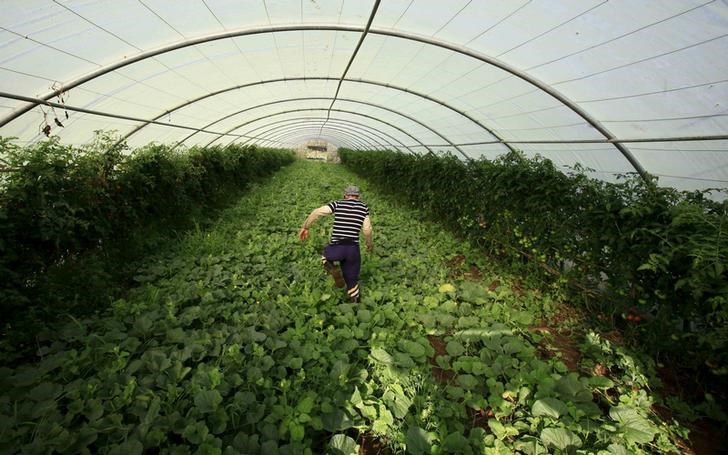By Cecile Lefort
CANBERRA, March 1 (Reuters) - Australia's deputy prime minister on Tuesday urged the country's A$1.8 trillion ($1.3 trillion) pension fund industry to boost its investment in agriculture as the sector gears up to meet strong demand from Asia.
While foreign interest in Australian agriculture has soared, Deputy Prime Minister and Agriculture Minister Barnaby Joyce said it was baffling that local pension funds had just 0.3 percent of their total investment portfolio in the growing sector.
"We have to make sure that we create a culture where investment in the agriculture portfolio is just as logical as investment in the iron ore portfolio or coal portfolio," Joyce said at the Australian Bureau of Agriculture and Resource Economics and Sciences conference.
Australia's second biggest export earner behind iron ore, shipments of agricultural produce are forecast to hit a record A$45 billion next year, but the industry is facing a shortage of investment. productivity will be critical to the success of Australian agriculture on world markets. That's going to require investment across the board - in land, in technology and in our people," Karen Schneider, executive director of ABARES said at the conference.
The Association of Superannuation Funds of Australia (ASFA), an industry body, said agriculture was an emerging investment asset, but the industry representative had concerns over the reliability of returns.
"As long-term investors, trustees need to look at liquidity, risk, the level of returns and costs. As an emerging class, not all of these areas are fully transparent or even possible to know," Pauline Vamos, CEO, ASFA told Reuters.
The reluctance of Australia's pension fund industry to invest is in contrast to Canada's Ontario Teachers' Pension Plan Board and Public Sector Pension Investment Board, which both last year acquired Australian agricultural assets.
The Australian government, however, is tightening rules over foreign ownership of rural land amid a public backlash and concerns over food security.
Australia in November rejected a deal that would have seen land the size of South Korea sold to Chinese bidders, although it last week approved a deal for the sale of the country's largest dairy to a Chinese firm. = 1.4013 Australian dollars)
